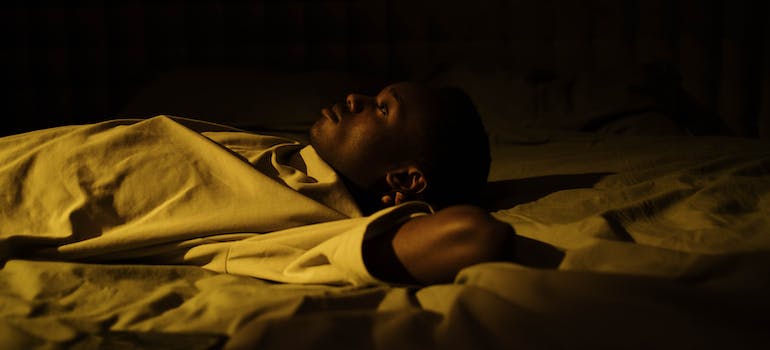Ritalin can enhance cognitive performance and focus and create temporary heightened alertness and energy. This makes it popular among young people. Therefore, it is important to understand that the misuse of Ritalin poses serious health risks. Harmony Ridge Recovery Center, as a reputable drug and alcohol rehab in West Virginia, will explore the importance of recognizing Ritalin addiction in West Virginia’s youth, its signs and symptoms, treatment options, and preventive measures.
Is Ritalin Legal in West Virginia?
The legality of Ritalin in West Virginia is governed by its classification as a Schedule II substance under the Controlled Substances Act. Much like other substances in this category, such as cocaine and methamphetamine, Ritalin is recognized to have a high potential for abuse. It is important to note that abusing Ritalin is explicitly illegal, and the consequences can be severe. The classification as a Schedule II substance indicates that while Ritalin does have recognized medical uses, its abuse may lead to addiction and significant psychological or physical dependence. Thus, the strict regulations surrounding Schedule II drugs aim to control their distribution and use, requiring individuals to obtain a valid prescription from a licensed healthcare professional to use Ritalin legally in the state of West Virginia.

Prescription Drug Misuse Among University Students
In a recent survey conducted by the University of Michigan, alarming findings revealed that a significant portion of university students diverge from conventional medical practices when it comes to prescription medications. The survey, which included over 3,600 university students, disclosed that a striking 20 percent of respondents admitted to taking prescription drugs not for their intended medical purposes but rather with the sole intention of achieving a euphoric or recreational high. This concerning trend sheds light on the growing issue of prescription drug misuse among the student population, emphasizing the need for increased awareness and preventive measures within educational institutions.
Factors Contributing to Ritalin Addiction in West Virginia’s Youth
Using Ritalin leads to addiction that has severe consequences and needs to be treated at a stimulants addiction rehab center. The key factors that contribute to Ritalin addiction in West Virginia’s youth are:
- Overprescription and accessibility
- Academic and performance pressures

Overprescription and Accessibility of Ritalin
Health professionals largely influence overprescription. Factors such as misdiagnoses, limited time during patient consultations, and external pressures may increase the likelihood of prescriptions. The unintended consequence is a surplus of Ritalin in circulation, providing more opportunities for misuse.
The social dynamics surrounding Ritalin misuse are complex, with peer pressure and societal expectations playing significant roles. In university settings, where social interactions intensify, the allure of using Ritalin for non-medical purposes may be heightened. The desire to conform to perceived norms and fit into certain social circles can drive some individuals to experiment with the drug.
Academic and Performance Pressures
Academic environments, characterized by high expectations and intense competition, contribute significantly to Ritalin misuse. The pressure to excel academically can become overwhelming, leading students to seek quick solutions. Ritalin, with its reputation for enhancing focus and concentration, may be perceived as a shortcut to meet the rigorous demands of academic life.
Beyond the academic challenges, the use of Ritalin among the youth is also linked to the impact of performance pressures on self-esteem. The fear of failure and the constant need to meet or exceed expectations can erode an individual’s confidence. Some may turn to Ritalin as a coping mechanism, believing it provides a temporary boost in cognitive abilities that can elevate their performance and, in turn, their self-esteem.

Symptoms and Signs of Ritalin Addiction in West Virginia’s Youth
Understanding symptoms and signs of Ritalin Addiction in West Virginia’s youth is essential for parents, educators, and healthcare professionals to identify potential Ritalin abuse and intervene effectively in promoting recovery and well-being. The symptoms and signs can be grouped as:
- Behavioral indicators
- Physical symptoms
Behavioral Indicators of Ritalin Abuse
Make sure to ask for professional help and enroll in rehab in WV if you recognize the following behavioral indicators:
- Changes in Social Interactions: Individuals grappling with addiction may exhibit noticeable changes in their interactions, such as withdrawal from once-enjoyed social activities, strained relationships, or a decline in communication with friends and family.
- Academic Performance Decline: The drug’s misuse can lead to a paradoxical effect on academic achievements, with a decline in grades, incomplete assignments, and a noticeable shift in focus away from educational responsibilities.
- Increased Secrecy and Isolation: Individuals may go to great lengths to conceal their substance use, becoming more withdrawn and isolating themselves from those who might question or intervene in their habits.
Physical Symptoms of Ritalin Addiction
Physical symptoms include:
- Changes in Appetite and Sleep Patterns: Some individuals may experience a loss of appetite, leading to weight loss, while others may exhibit increased hunger and subsequent weight gain. Disturbances in sleep, such as insomnia or excessive drowsiness, can also be prevalent.
- Weight Loss or Gain: Ritalin misuse can contribute to noticeable changes in weight. The stimulant properties of the drug may suppress appetite, resulting in weight loss. Conversely, as individuals come down from the effects, they may engage in binge-eating episodes, contributing to weight gain.
- Health Complications: Ritalin addiction can give rise to various health complications. These may include cardiovascular issues, heightened blood pressure, and potential mental health challenges such as anxiety or depression. Recognition of these physical symptoms is crucial for early intervention and comprehensive treatment.

Challenges in Treating Ritalin Addiction in West Virginia’s Youth
Addiction treatment for young people can be a complex task for several reasons. Here are the main challenges in treating Ritalin addiction in West Virginia’s youth:
- Young people do not seek help due to stigma. A significant challenge in treating young adults with Ritalin addiction lies in the limited awareness and associated stigma surrounding substance abuse. Many individuals may be hesitant to seek help due to fears of judgment, social repercussions, or a lack of understanding about the available resources for recovery.
- Treatment approaches should align with developmental stages. Tailoring treatment approaches to the unique developmental stages of young adults is a critical consideration. Transitioning from adolescence to adulthood involves distinct challenges, and effective interventions must acknowledge and address these differences. Treatment strategies should align with the developmental needs, goals, and aspirations of the individuals undergoing recovery.
- Young people often struggle with co-occurring mental health issues. Identifying and addressing these underlying mental health conditions concurrently is crucial for a holistic approach to recovery. Integrating mental health support into addiction treatment can enhance overall outcomes and foster lasting well-being.
Ritalin Addiction Treatment for Young Adults in WV
Treating Ritalin addiction in West Virginia’s youth can be done through early intervention strategies and tailored treatment approaches at a reputable rehab center for young adults. By combining early intervention strategies within educational settings and communities with tailored treatment approaches like cognitive-behavioral therapy and support groups, the holistic treatment of Ritalin addiction in young adults becomes more comprehensive and effective.
Early Intervention Strategies
Implementing early intervention strategies in educational settings is crucial for addressing Ritalin addiction among young adults. School-based programs can raise awareness about the risks of substance misuse, providing information on the proper use of prescription medications. Additionally, creating a supportive environment that encourages open dialogue about mental health can contribute to early identification and intervention.
Also, community outreach initiatives play a pivotal role in preventing and treating Ritalin addiction among young adults. Educational campaigns can dispel myths, reduce stigma, and inform both individuals and communities about the dangers of substance misuse. By fostering a collective understanding, communities can actively participate in identifying and supporting those at risk.
Tailored Treatment Approaches
We have the following options for addiction therapy:
- Cognitive Behavioral Therapy (CBT)
- Dialectical Behavior Therapy (DBT)
- Individual Therapy
- Support Groups for Young Adults

Cognitive-Behavioral Therapy
Tailoring treatment approaches to the unique needs of young adults involves incorporating evidence-based therapies such as cognitive behavioral therapy for substance use disorders. CBT addresses distorted thought patterns and behaviors associated with addiction, empowering individuals to develop healthier coping mechanisms. This therapeutic approach can be particularly effective in helping young adults overcome the challenges related to Ritalin addiction.
Dialectical Behavior Therapy (DBT)
Another valuable addition to tailored treatment approaches is dialectical behavior therapy for addiction. Especially beneficial for individuals struggling with substance misuse, DBT combines cognitive-behavioral techniques with mindfulness strategies. It helps young adults develop skills in emotion regulation, interpersonal effectiveness, and distress tolerance, providing a comprehensive framework for managing the complex challenges associated with Ritalin addiction.
Individual Therapy
Recognizing the unique needs of each individual, incorporating individual therapy for addiction into the treatment regimen provides a personalized and focused approach. Individual therapy sessions allow for in-depth exploration of personal challenges, underlying factors contributing to addiction, and the development of tailored coping strategies. This one-on-one therapeutic setting facilitates a strong therapeutic alliance and promotes targeted interventions for the specific issues faced by young adults dealing with Ritalin addiction.
Support Groups for Young Adults
Establishing support groups specifically designed for young adults facing Ritalin addiction fosters a sense of community and understanding. Peer support can be crucial in the recovery process, providing people with shared experiences, guidance, and encouragement. These groups offer a safe space for young adults to express themselves, share coping strategies, and work collaboratively toward sustained recovery.
Role of Family and Therapy in Recovery
Family involvement is important in the recovery process of young adults grappling with Ritalin addiction. Families serve as a vital support system, offering emotional, practical, and moral support throughout recovery. Building a strong support network within the family dynamic helps people feel connected and encouraged, fostering a sense of belonging crucial for sustained recovery.
Effective communication within the family is a cornerstone of supporting a loved one in recovery. Open and honest dialogue helps break down barriers, allowing family members to understand the challenges the affected youth faces. Establishing communication strategies that promote empathy, active listening, and constructive feedback creates a conducive environment for positive change.
Therapeutic Interventions
Family therapy is important for addressing the underlying dynamics that may contribute to Ritalin addiction. By involving the entire family in the therapeutic process, this approach seeks to identify and resolve issues that may be impacting the individual’s substance misuse. Family therapy for addiction enhances understanding, promotes healthy communication, and facilitates collective problem-solving, ultimately strengthening familial bonds crucial for sustained recovery.
Preventive Measures and Education for Parents and Educators
There are two important aspects of preventive measures: educating parents and training educators to identify early signs.
Educating Parents about Ritalin Use
Parental education is essential in preventing Ritalin misuse among young individuals. Providing parents with comprehensive information about the risks and benefits of Ritalin usage enables them to make informed decisions regarding their child’s prescription. Understanding the potential side effects, signs of misuse, and the importance of following healthcare professionals’ guidance empowers parents to play an active role in their child’s well-being.
Open communication between parents and healthcare providers is essential for effective prevention. Educating parents on the significance of monitoring their child’s medication intake and promptly communicating any concerns or observed changes ensures a collaborative approach to healthcare. This proactive engagement helps prevent misuse and fosters a sense of shared responsibility for the child’s health.
Training Educators to Identify Early Signs
As frontline observers, educators benefit from professional development in substance abuse awareness. Training sessions that equip educators with knowledge about the signs and symptoms of Ritalin misuse enable early identification and intervention. By enhancing their understanding of substance abuse issues, educators become key contributors to a supportive and preventive educational environment.
Also, collaboration between educators and mental health professionals is integral to creating a holistic support system within educational institutions. Establishing channels for communication and collaboration allows educators to seek guidance from mental health professionals when early signs of Ritalin misuse are identified. This teamwork ensures a comprehensive approach to addressing the multifaceted challenges young individuals may face.

Create a Healthier Future with Harmony Ridge
The issue of Ritalin addiction in West Virginia’s youth demands a comprehensive and nuanced approach. Examining the factors contributing to addiction, the symptoms and signs to look out for, and the challenges and solutions in treatment reveals the complex situation surrounding this concern. The role of family, therapy, preventive measures, and education for parents and educators emphasizes the importance of a collaborative effort in addressing and preventing Ritalin misuse. By fostering awareness, promoting early intervention, and prioritizing the well-being of young people, we can collectively work towards mitigating the impact of Ritalin addiction and nurturing a healthier future for the youth in West Virginia.



